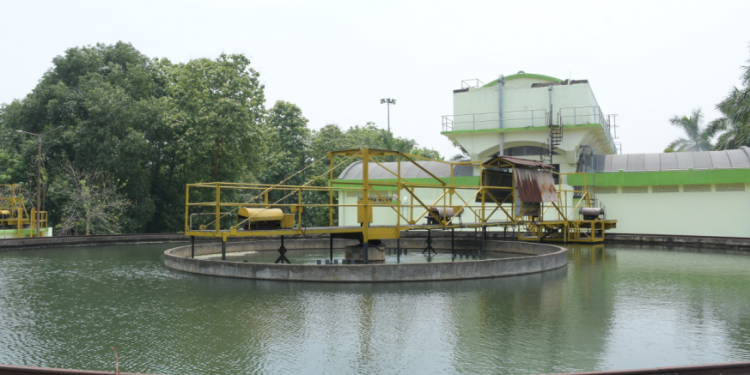Rourkela: Given the protracted and hard summer days this year, Rourkela would have gone through a major water crisis. However, advance planning and implementation of some prudent measures by the water supply unit of Town Engineering (TE) department of the Rourkerla Steel Plant (RSP) saved the Steel City from an imminent crisis.
Learning from the harrowing experience of 2016 when the City witnessed an unprecedented water crisis, the water supply unit began implementing its plans to construct embankments on Koel river, from where the steel major draws water for its captive township, since March this year.
“To address any emergency this year, the TE (Water Supply) department initiated meticulous planning and execution. One of the pivotal measures was the construction of a cofferdam by the first week of March 2024,” said an official.
The dam increased the flow of river water to the intake pumps, maintaining the water level throughout the summer. The department ensured proper supervision of the dam to prevent any man-made or environmental damage, he said.
Another critical step was ensuring the availability of pumps at the intake well. The Intake Complex in Sector20, equipped with three wells and 36 MGD pumping capacity, underwent timely overhaul and preventive maintenance before the summer. “The Met department gave an early warning, so we became proactive to ensure that the pumps operated smoothly without failures during the peak demand period,” said the official.
The regular cleaning of the intake was also prioritised for floating materials in the river which could have restricted the water flow to the pumps. The department conducted frequent removal of these materials, ensuring an uninterrupted water supply to the intake, the official said. Additionally, the operation of recycle pumps at BWW-Sector8 and WPP-Hilltop played a crucial role in water management. These pumps facilitated the reuse of wastewater from filter beds and valve leakages. “Strategically, we took a very important step. By operating these pumps at regular intervals, the department significantly reduced water wastage,” he informed.
To further minimise wastage, regular inspections of drinking water distribution network were conducted. Any reported leaks were promptly addressed, ensuring the efficient use of water. The department’s responsiveness to public reports of leakages also contributed to the overall conservation efforts, he added.
However, despite these measures, occasional complaints about water shortages were reported by residents. “We mitigated these temporary issues by supplying drinking water through tankers to the affected areas as and when it was necessitated,” explained the official. Additionally, Jalachhatras (water kiosks) across the township were regularly replenished with drinking water to ensure public access.
All these comprehensive measures not only ensured a stable water supply for residents but also supported the township’s parks and gardens, thus providing comfort to the residents during the hard summer.
In 2016, the water table of Koel river fell to an all-time low, while Brahmani too almost ran dry. To meet the demands of the captive township, the RSP then had laid huge pipes to bring water from Tarkera to the water treatment plant at Sector-20.
PNN






































